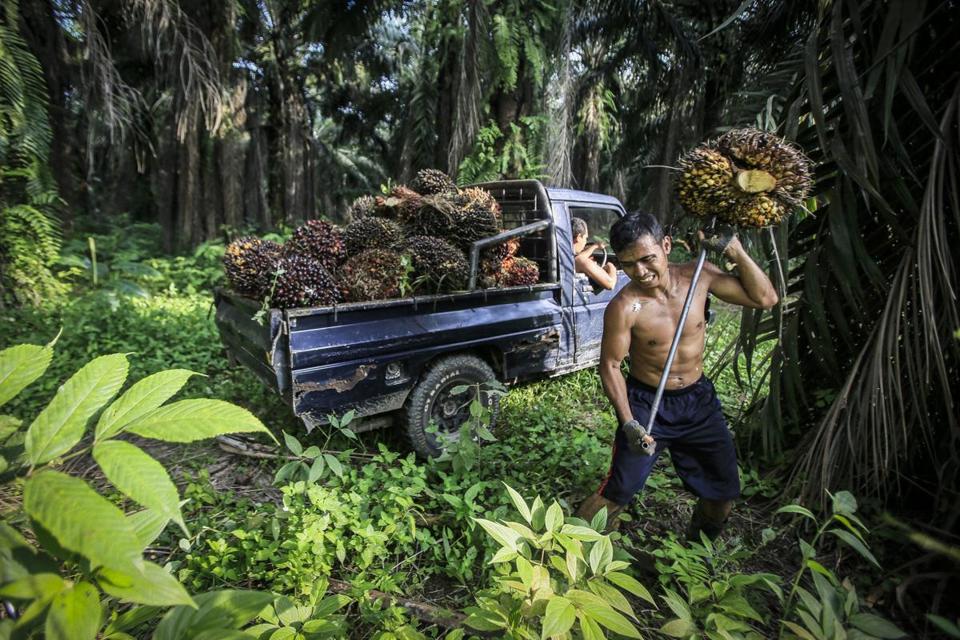Palm oil is the most widely consumed vegetable oil on the planet. According to the World Wildlife Fund, an estimated 50 percent of packaged products sold in supermarkets contain some of the ubiquitous oil. It is mainly grown in Southeast Asia and is used in products as diverse as ice cream, toothpaste, and detergent. The demand for more and more land to plant palm oil trees has seen the rapid and rampant destruction and conversion of tropical rainforest habitats into plantations. This is threatening important ecosystems, displacing and killing threatened and endangered species, among them orangutans, tigers, elephants and rhinos. Classified as critically endangered, on the edge of extinction, orangutans numbers have fallen so dramatically that wildlife organizations and conservationists say unless the destruction ends, we will see the end of the species. -- By European Pressphoto Agency

An Indonesian worker harvests palm fruits at a palm oil plantation in Deli Serdang, North Sumatra, Indonesia, Sept. 16. Indonesia is the world’s largest producer of palm oil, made from the palm fruit, followed closely by Malaysia. (Dedi Sinuhaji/EPA)
from
Big Picture